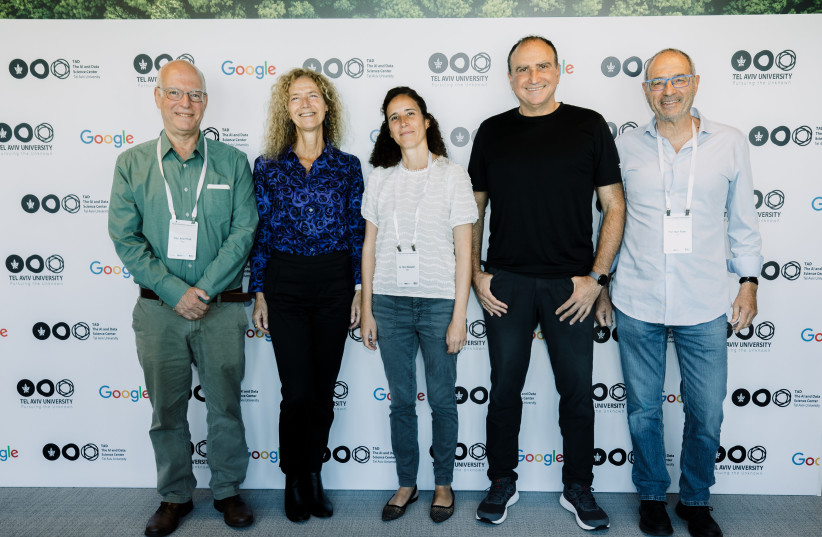Google and Tel Aviv University (TAU) have launched a new program for the promotion of artificial intelligence (AI) and data science research through the Center for AI and Data Science at the university that will be headed by engineering Prof. Meir Feder with the financial support of $1 million from Google.
Feder thanked Google for the ongoing collaboration and support in these important fields of AI research at TAU. “Both sustainability and education are topics of growing interest and AI can greatly advance these areas for the benefit of the environment and society in general. AI can help to address some of the biggest challenges such as teaching and learning, climate change, water resources, renewable energy, biodiversity and more.”
“Both sustainability and education are topics of growing interest and AI can greatly advance these areas for the benefit of the environment and society in general. AI can help to address some of the biggest challenges such as teaching and learning, climate change, water resources, renewable energy, biodiversity and more.”
Meir Feder
He added that “the collaboration with Google helps in another very important goal of the center – the support of underrepresented groups in the field of AI in academia and promote diversity and inclusive environment at the university. We are happy to join forces to promote all these important aspects.”
The new three-year program is focused mainly on AI research for sustainability and for education. The launch event held on May 1 included a ceremony to announce the grant awardees who were selected by the grant committee following a call for research proposals.
The faculty members who won the grants come from diverse fields – from Porter School for Environmental Studies, Life Sciences, Engineering and Education. In addition, three fellowships were awarded to graduate students from underrepresented groups in academia in the field of AI. The winning students come from computer science, zoology and education.

The history of Tel Aviv University's partnership with Google
At the opening ceremony, TAU president Prof. Ariel Porat and Prof. Yossi Matias, vice president for engineering and research and head of Israel's Google Center, spoke about the program and the TAU-Google long-standing partnership.
“Several years ago,” said Porat, “we began a fruitful collaboration with Google that was led by Prof. Yossi Matias, Google’s vice president for engineering and research. The purpose of this partnership was to boost the contribution of AI to the improvement of human society and the world we live in. In this new program, we place the focus on utilizing AI tools to advance sustainability and education. Sustainability is absolutely critical to the continued existence of humanity, while education is crucial to the health of our society. TAU excels in both of these areas, and collaboration with Google will strengthen them even further.”
“We have great opportunities to use AI to make a significant positive impact in many areas, and I’m excited about our continued investments in driving for positive change in sustainability and education,” Matias said. “Through our continued and expanded partnership with TAU and its Center for AI and Data Science, we hope to integrate industrial and academic research to advance science and technology in these critical areas for humanity and society. We are also committed to continuing our efforts to make academia and industry more inclusive for all segments of society.”
Google has started a mentoring program with ExactShe, established by Prof. Tova Milo, TAU’s dean at the Faculty of Exact Sciences, through which female Google volunteers will mentor female students from the faculty to create a supportive community and help them integrate into the research community and the industry.
As part of the long-standing partnership, TAU and Google held joint seminars in the last couple of years in the fields of AI for the Environment, and Health and AI. Led by Google senior scientist Dr. Deborah Cohen and Dr. Shiri Stempler, director of research collaborations at TAU, the meetings included talks by researchers from both institutions who presented established results and work in progress and provided a platform to advance connections between academia and industry. They said they will continue to hold joint meetings as part of the new program as well.
